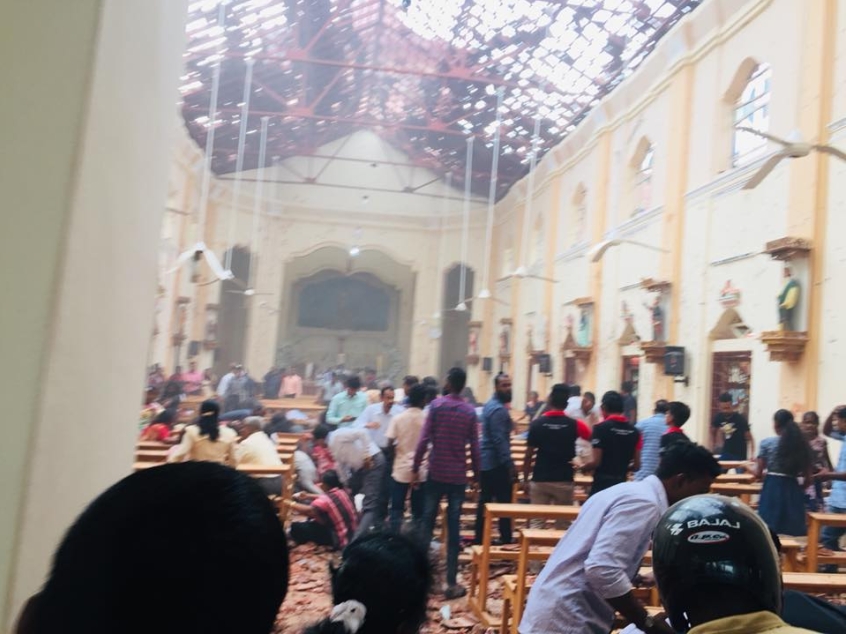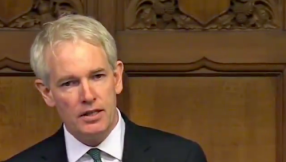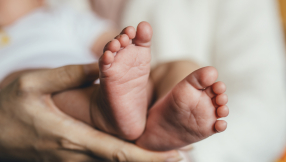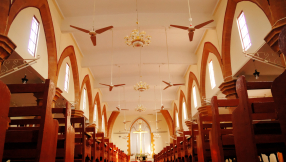
The head of the UK Coptic Orthodox Church has called on faith communities to make a joint stand against "anti-Christianism".
Archbishop Angaelos made the appeal in the wake of horrific attacks on churches and luxury hotels in Sri Lanka on Easter Sunday in which at least 290 people died.
He said it was "time to act" and that "anti-Christianism" needed to be recognised as a "real phenomenon" alongside anti-Semitism and Islamophobia.
"It is time for us all to stand together and recognise anti-Christianism [is] as much a real phenomenon and epidemic as anti-Semitism and Islamophobia and deal with it as such," he tweeted.
"Only when we consider an attack on ANY of us as one on ALL of us can we go some way towards healing our world," he said in another post.
The Sri Lankan government has blamed Sunday's attacks on local hardline Islamist group, the Sri Lanka Thowheed Jamath (SLTJ).
Government spokesman, Rajitha Senaratne, told reporters: "Fourteen days before these incidents occurred, we had been informed about these incidents."
The latest attack on Christians comes as the UK government admits it needs to do more to support members of the persecuted church.
Speaking before Sunday's attacks, foreign secretary Jeremy Hunt said he was "appalled" that 245 Christians worldwide are suffering for their faith, according to persecution watchdog Open Doors.
Mr Hunt recently launched a review into the Foreign Office's support for persecuted Christians, with initial findings expected to be released next week.
"Freedom of Religion or Belief is a human right enshrined in the Universal Declaration of Human Rights. It must be respected," he said.
"People from all faiths or none should be free to practise as they wish. I will continue to make this case for the millions who suffer as a result of their beliefs."
Responding to Sunday's terrorist attacks, British Prime Minister Theresa May said "no one should ever have to practise their faith in fear".
"The acts of violence against churches and hotels in Sri Lanka are truly appalling, and my deepest sympathies go out to all of those affected at this tragic time," she tweeted.
"We must stand together to make sure that no one should ever have to practise their faith in fear."
Wilson Chowdhry, chairman of the British Pakistani Christian Association, said the United Nations and world leaders needed to do more to stem the violence against Christians.
Mr Chowdhry, who has been vocal about the persecution of Christians in Pakistan by Islamist hardliners, said the Sri Lankan attacks followed the pattern of those perpetrated by Islamic State satellites.
"The targeting of Christians on Easter Day is very intentional and is based on a desire to frighten worshippers from practising their faith and sowing seeds of division amongst communities," he said.
"Moreover the targeting of high-end hotels which are frequented by westerners is simply a clear hatred for all that is not Islamic [and] a clear indication that fundamentalist ideology is radicalising the Muslims of Sri Lanka, that till now exhibited little interfaith tension.
"Innocent lives have been lost and those killed join a growing list of Christian martyrs in a world where intolerance towards our faith has seen exponential growth.
"World governments and International bodies like the UN must do more to eradicate extremism and terrorism, especially towards Christians who are experiencing unprecedented levels of persecution."













